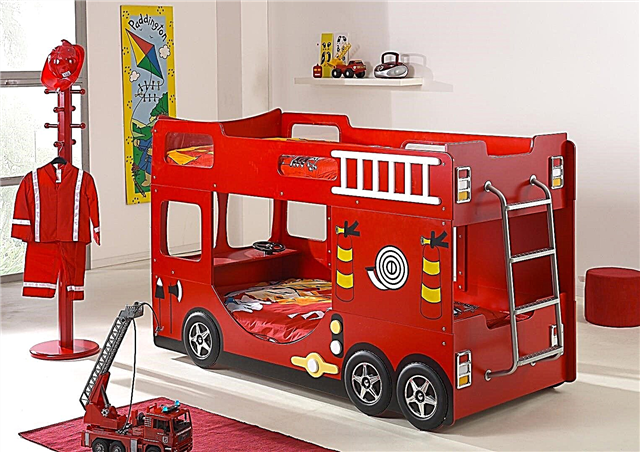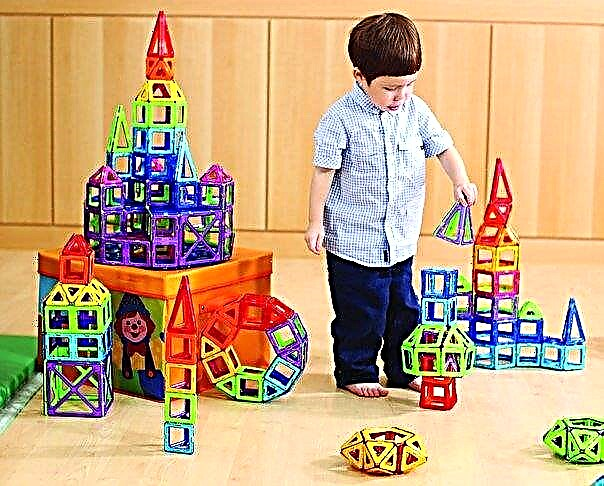Nowadays, the idea of joint sleep of a mother (and often a father is also added here) with a child is especially popular. This phenomenon has caused and is causing many disputes between specialists and parents, however, as well as other educational problems.
Some experts are promoting co-sleeping, pointing out the undeniable benefits. Other experts point out numerous disadvantages of such a holiday. In order for mothers to make their own decision, you need to consider the arguments of both sides and carefully study the recommendations of pediatricians and psychologists.
Popularity of co-sleeping
In the modern world, educational habits and traditions actively "travel" from country to country, forcing parents to reconsider their previous opinions and knowledge. For example, today Russian mothers are increasingly using slings (dressings for carrying babies), feeding babies at first call and beginning to practice falling asleep and sleeping together. But is it really good to sleep with your baby in the same bed?

Experts working with newborn babies - pediatricians, neonatologists, perinatal psychologists, hepatitis B counselors - are very ambiguous about this phenomenon. Some are campaigning for a joint dream, convincing parents that it strengthens the mother-child bond.
The latter, on the contrary, are wary or downright negative, believing that a born baby should have his own bed from birth, and keeping the baby close to him only increases the risk of all kinds of negative consequences, including sudden infant death syndrome (SIDS).
To help moms make the final decision and understand the intricacies of scientific opinions and interpretations, below are the pros and cons of shared sleep. All this will allow you to evaluate the advantages and disadvantages of falling asleep together.
The case for sleeping together
Perinatal psychologists and breastfeeding specialists usually talk about the usefulness of spending time in bed together. Let's take a closer look at their arguments.

- Optimizing natural feeding... At night, the baby receives the amount of milk secretion he needs for optimal development. Thus, joint sleep can be considered a supplement to this type of hepatitis B, such as natural feeding. That is, the mother, at the first call of the baby, provides the breast, including at night.
- Optimization of lactation. A baby who stimulates the mother's breast during the day and night promotes long-term breastfeeding. Therefore, the more often the baby sucks the breast, the more milk secretion will be released from the woman. In addition, it is at night in the body that the highest level of prolactin is observed - a hormonal substance that affects milk production.
- The best adaptation to the new world. It is believed that a child who has spent 9 months in his mother’s belly will feel better in the same bed with his mother, because he receives an additional feeling of warmth and security. Closeness can reduce stress and improve the functioning of the nervous system.
- Improving baby sleep. A child who falls asleep on his chest quickly enough plunges into the "embrace of Morpheus." It is enough for mom to put him next to him, there is no need to get up, lay him down, be afraid that he will wake up after being placed in a separate bed. That is, you can forget about sleep problems.
- Improving mom's sleep. A woman does not have to get up regularly to feed the baby. As a result, the mother feels rested, less irritable. And this affects the little one, and the spouse, and the older children. Although, of course, this does not negate the change of diapers and diapers.
Some mothers, especially first-time mothers, find it safer when their baby is nearby. Judge for yourself: you open your eyes and see that the baby is quite sniffling, covered with a blanket, you can hear his uniform breathing.
Reasons Against Sharing Sleep
Opponents of a common night's rest with a child also have quite weighty arguments. Most often, their arguments relate to the inferiority of intimate relationships between spouses and the baby's possible addiction to sleep in the parent's bed.

- Inability to completely relax. Many women are not able to fully relax and fall asleep when a small body is nearby. This is due to the fear of crushing the crumb in a dream or wrapping it up with a blanket so tightly that it will suffocate. As a result, my mother simply does not get enough sleep.
- Violation of intimacy. The status of newly minted mums and dads in no way cancels the fall in love with each other and the desire to retire. And since there is a child in the bed, it will not be possible to fully enjoy the intimacy (such a problem, in principle, is easily solved, since having sex is not necessary exclusively on the parent's bed).
- Problems with teaching the baby to a separate room. It's no secret that babies who are initially used to sleeping in their own bed are much more likely to get used to moving to a separate room. In addition, they will not need to re-read a lot of fairy tales before going to bed or chant 10-15 lullabies in the evening.
- Difficulty falling asleep in a child. Studies by foreign scientists show that children who are accustomed to sleeping separately from birth are less likely to suffer from nightmares than babies whose parents practiced sleeping together. That is, two-three-year-old children do not suffer from the thought that terrible monsters are hiding under their beds.
Some men strongly oppose the presence of a child in the matrimonial bed. And the point here is not only in intimate relations with his wife, but also in the fact that the newborn often wakes up, screams and, accordingly, wakes up the parents. And dad needs to go to work in the morning.
The opinion of Dr. Komarovsky
Evgeny Komarovsky, a popular TV doctor and mother's assistant in raising babies, is convinced that sleeping together is wrong.

At the same time, he leaves this issue at the mercy of mothers, since it is the woman who must decide how it is more convenient for her to sleep - with or without a child. But why is it wrong to have a baby in the parent's bed? The doctor is confident that sleeping together can increase the threat of SIDS.
This alone is enough, according to the pediatrician, to give up this pastime. EO Komarovsky advises to leave the baby in the parent's room during the neonatal period.
This will track his sleep and improve lactation. After optimizing lactation, the child can be transferred to a separate room, and control can be established using a radio or video baby monitor.
If the parents put the baby in their bed due to the fact that he often wakes up, then it means that they could not establish a regime and establish a lifestyle. The doctor is sure that if the child is not overheated, bathed before falling asleep, spent a fairly active day, ate well, then at night he simply "has no need" to wake up.
Combining positions
If you still have not decided what is better - to sleep with the child or separately, you can choose the average option. It takes into account both the needs of a newborn baby and parental interests, and also allows parents not to go to extremes. Depending on the age of the baby, parents can follow these rules:

- from 0 to 5 months. The baby can fall asleep close to the mother, but in his own bed (the so-called side models, in which one of the walls is removed). In this case, he feels the mother, feels her closeness, and it is convenient for the woman to feed the baby - just put it to her breast. In addition, the risk of crushing the baby in a dream is eliminated;
- 5 - 12 months. At this age, the child can already sleep in a separate bed with an installed side wall. The children's bed is located either in the parent's room or in a separate room. But in the latter case, you will need a control device. Such a separation will gradually reduce the number of night feedings and will ensure a sound and long sleep for all family members;
- after 1 year. Usually at this age stage, children are ready to move to a separate room. That is, at night the baby sleeps in its own crib in the nursery, but during the day, parents can safely take it to their bed and relax together. This division allows everyone to sleep well: both kids and the older generation.
Of course, sleeping together is possible even after one year of age in some situations. For example, mom and dad can take the baby to themselves if he is sick, frightened of a nightmare, and even in the morning, when the child resorts to his parents to get some sleep.
Safe Sharing Rules
If you do decide to practice sleeping together, then you must adhere to a number of rules. First of all, you need to enlist the support and consent of your spouse. If the husband is not against such a night's rest, you need to properly organize a sleeping place and create comfortable conditions for all participants in the "process".
In addition, it is necessary to take into account the problem of having the skills of breastfeeding in a supine position. Another important point is the size and shape of the mammary glands. If the breasts are large, you should consult with a HV expert.
There are also a few things to keep in mind:
- first you need to practice sleeping with your child during the day, and only then switch to a joint night's sleep;
- it is necessary to choose an orthopedic mattress that would not collapse under the weight of the child;
- the baby should not be laid with his head on a pillow; in extreme cases, a diaper can be used as such;
- it is important to regularly change bedding, and it is generally better to put the baby in its own diaper;
- you need to lay the child between the mother and the wall (or side), you should not put it between the parents;
- it is necessary to remove various blankets, bedspreads, pillows away from the baby, into which he is able to bury his nose;
- you cannot put the baby in the parent's bed if one of the adults has taken alcohol or sedatives;
- if mom or dad is sick with an infectious disease (colds, skin ailments), they refuse to sleep together.
If you have tried sleeping together and have some problems (inadequate rest, difficulties with feeding the baby in a lying position), you should think about how to sleep separately.
The choice is yours

After reading this and other articles on sleeping with a child, parents can understand that there is no consensus among experts on this matter. And this is quite natural, since almost any issue of the upbringing and development of children is distinguished by a contradictory description and value judgment on the part of specialists.
As noted above, pediatricians, psychologists, neonatologists give various arguments in favor of sharing a night's sleep with a baby, describe various benefits. However, you can find certain disadvantages of this event.
What should moms do? Regardless of different trends and popular trends in educational practice, parents must make decisions based on their own desires and needs of children. It is important to take into account the opinions of both spouses.
If adults feel the comfort and happiness of staying crumbs in the family bed, then it is quite possible to continue to practice sleeping together. However, if any household member (for example, a father) is uncomfortable or wants to sleep separately from the child, this fact must be taken into account.
As a conclusion
Parenting is hard work, so it's not surprising that mom and dad want (and need to) get enough sleep at night and recuperate. Therefore, putting the child in the parent's bed is a rather bold act that should be thoroughly considered.
In any case, the final decision on the admissibility of such a holiday should be made exclusively by the spouses, guided not only by the needs of the child, but also by their own desires. After all, the most important thing is the joy and comfort of all family members, the rest of the parents, who will then raise their little treasure.



